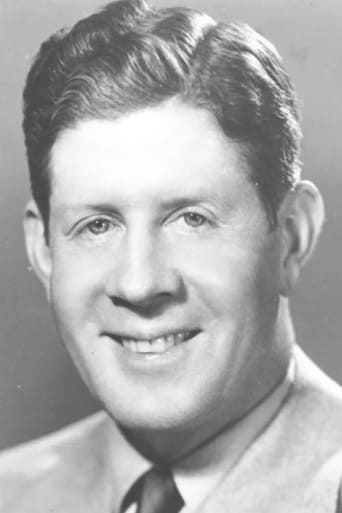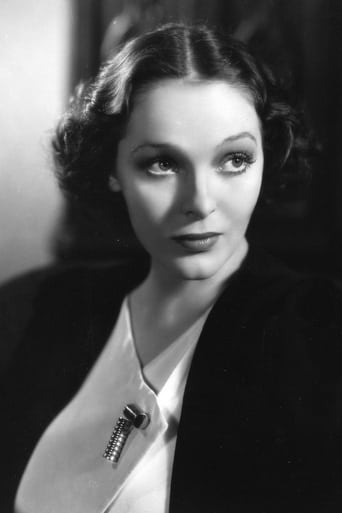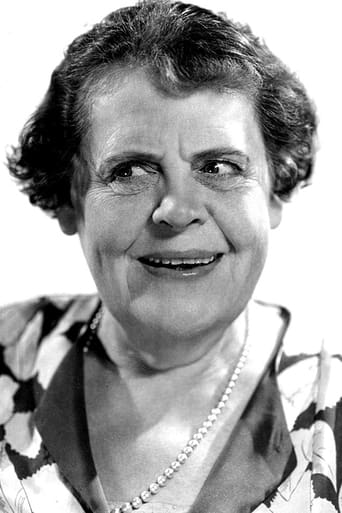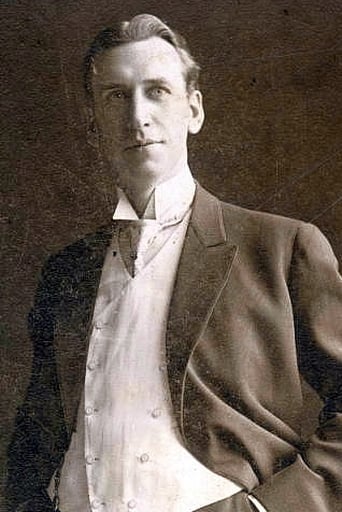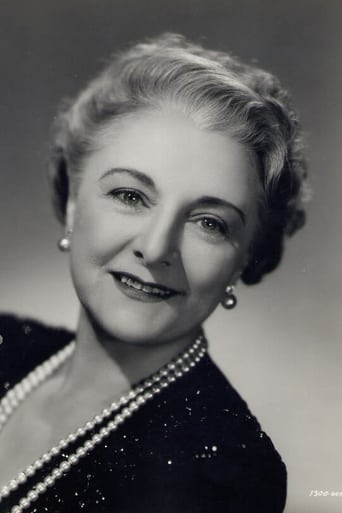earlytalkie
"The Vagabond Lover" could be considered the perfect example of the early-talkie. The acting by Mr. Vallee is rather non-exsistant, but his singing and the music is quite pleasant, and the performance by the great Marie Dressler as "Auntie" makes up for the rest. The photography is very representative of the early sound era, with the actors grouped around a hidden mike with hordes of people in the frame. The sound itself is remarkably good, maybe the best remaining example of early sound recording. There is one chorus number which has a brief overhead shot of the type that Busby Berkely would make famous a year later in "Whoopee!". The film is a brief 65 minutes in length, and it is a rather modest black-and-white production, but it remains a telling window into the 1920s, with it's fashions, music and such. This was also one of the most profitable films of the year for the fledgling Radio Pictures, a new company set up that year to take advantage of the RCA Photophone system. The DVD has a rather dry commentary prolouge by a UCLA film specialist which appears to be taped in his apartment. Rather poorly edited, this feature is easy to skip on the DVD, once you have seen it once. Other players featured in this include Loretta Young's sister, Sally Blane, Eddie Nugent and especially Nella Walker, as Marie Dressler's rival for social prominence. The story, by James Ashmore Creelman, was purportedly based on Mr. Vallee's own carrer.
Michael_Elliott
Vagabond Lover, The (1929)** (out of 4)Early talkie from RKO helped introduce Rudy Vallee to the world. In the film, which was apparently based partly on his life story, he plays an unknown musician who breaks into a famous musicians house and is mistaken for said musician by a rich socialite (Marie Dressler). Soon Vallee begins to fall for her niece (Sally Blane) but he still has this secret to work around. This is a pretty mixed film because on one hand the music itself is pretty good but at the same time the story, acting and directing are all rather bland at best. I think the biggest problem with this film is that RKO didn't want to spend too much on the budget so they really didn't try overly hard to cover up various mistakes in the film. There are at least two scenes that I can think of off the top of my head where the actor messing up their lines but they just correct themselves and move on. It's also rather obvious in a few scenes that the actors miss their marks, which cause them to make sudden stops and throwing off the actor in the scene with them. The performance are a mixed bag as Vallee comes off likable enough but he's way too stiff and his line delivery is pretty weak. Dressler manages to turn in a fine performance but she isn't given a whole lot to do. Blane, Loretta Young's sister, seems to be in love with Vallee but her acting leaves a lot to be desired. She's certainly cute like her sister but she really doesn't deliver much in terms of a performance. The main reason to watch this thing is for the music and songs that include "You're Nobody's Sweetheart Now", "If You Were the Only Girl in the World" and "I'm Just a Vagabond Lover". Vallee and The Connecticut Yankees do fine work in regards to the music but I'd say a CD would be better fit than going through the entire movie.
barnesgene
Let's face it, as a movie, this is not persuasive. The principles of enunciating for the stage simply overwhelm the intimate sonics that even this incredibly early talkie were capable of producing. Almost immediately, subsequent movie directors understood the difference between stage and screen and made the corrections. Still, it's hard to believe that some of these scenes could not have been re-shot with more natural acting, once they saw the rushes. (I'm thinking they simply didn't think the delivery of lines would be that important in talkies. "Hey, they're talking! Ain't that enough?")The music is another matter. Yes, this is not jazz as the revisionist historians would have us understand it (i.e., a largely black phenomenon, with only the most perceptive whites getting it). But it's a mere 30 years from the Gay 90s (that's 1890's) song revolution, and the tug of the sentimental ditty still reached out to 1929 the way early rock still has its effect on rock in the new millennium. Don't judge it harshly. Music like this was an important bridge to the wider American public's tolerance, then acceptance, and finally love of what we now think of as a more pure form of jazz.Marie Dressler, born 5 years after the end of the Civil War, turns in a stunning performance. All the faces she makes while pushing away the maid's efforts to use smelling salts on her -- pure virtuosity, all done in the blink of an eye. But she can't save the movie entirely. All those shots of wooden Rudy and his entourage -- I've seen more life in the Petrified Forest.
lugonian
THE VAGABOND LOVER (RKO Radio, 1929), directed by Marshall Neilan, is an appropriate title to one of the most popular vocalists of the time, Rudy Vallee (1901- 1986). As with many singers making a screen debut, Vallee's performance is somewhat stiff, reciting his lines as if he were reading from cue cards, but satisfactory with his vocalizing. Unlike future crooners as Bing Crosby or Frank Sinatra, Vallee's screen career in leading roles were limited but acting overall improved through the passage of time. By the 1940s, however, Vallee started a new chapter in his career playing stuffy millionaires starting with Preston Sturges' comedic masterpiece, THE PALM BEACH STORY (Paramount, 1942) starring Claudette Colbert and Joel McCrea. As for THE VAGABOND LOVER, this is where the Rudy Vallee of motion picture screen began."Every small town has its small town band with big town ideas," is its opening title before introducing Rudy Bronson (Rudy Vallee), the lead vocalist and organizer of a college senior band who's been studying on developing his own orchestra by Ted Grant's mail order guide. Feeling Grant to be a remarkable man and speaking of him as he if were an old friend to his band members, Rudy heads over to Grant's Long Island home with his band for an audition. As Ted Grant (Malcolm Waite) prepares on leaving town for a vacation with his associates, Rudy, initially thrown out of Grant's home by the butler, intends not giving up enters Grant's home through an open window with his band members behind him. By the time Rudy gets his band organized, Grant who has already gone, ends up orchestrating his band to an empty house. Having been spotted by Ethel Whitehall (Marie Dressler), a wealthy matron, and her niece, Jean (Sally Blane), for entering through the window, the next door neighbors notify Officer George T. Tuttle (Charles Sellon) to investigate housebreaking. Confronting the "burglars," members of the band cover up by telling Tuttle, Mrs. Whitehall and Jean that Rudy IS Ted Grant and that they accidentally locked themselves out of the house. With one thing leading to another, Mrs. Whitehall soon engages "Ted Grant's Orchestra" to perform at a charity benefit for orphans. Rudy becomes successful, but feels guilty about his false pretense. At the advise of his band, Rudy remains silent, going on with his masquerade, even with the possibility of being exposed as a fraud and losing Jean, whom he's very much interested.During its brief 65 minutes, THE VAGABOND LOVER manages to squeeze in a handful of popular tunes, old and new, including "I'm Just a Vagabond Lover" (voiceover sung by Vallee during opening credits); "I'm Nobody's Sweetheart Now" (sung by band); "I Love You, Believe Me, I Love You," "Georgie Porgie" (sung by orphans); "If You Were the Only Girl in the World, and I Were the Only Boy," "A Little Kiss Each Morning, A Little Kiss Each Night," Instrumental dancing to "I'm Just a Vagabond Lover" and "Sweetheart, We Need Each Other," "I Love You, Believe Me, I Love You" (reprise by Vallee) and "I'll Be Reminded of You."Unlike some 1929 releases consisting of faded photography and distorted sound, the production values of THE VAGABOND LOVER are quite good. What may hurt the value of this movie today is the wooden acting of Rudy Vallee. Considering this to be his first screen appearance, with sound techniques still relatively new, this could be overlooked. Another bonus is the plot not focusing heavily on melodramatics with tearful solutions, but an overly familiar but an amusing mistaken identity plot that makes this antique more palatable. For anyone unfamiliar with the Rudy Vallee method, his singing singing style stir up chuckles with contemporary viewers, particularly watching his facial close- up with makeup on lips and eye-lids while singing with his eyes closed and mouth wide open. THE VAGABOND LOVER is redeemed somewhat by Marie Dressler (1869-1934) in the early stages of her sound career. Unlike the lovable characters she performed so well later on at MGM, she presents herself here more like a Margaret Dumont (of the Marx Brothers fame) type than anything else, but she's still Marie. Watching THE VAGABOND LOVER comes as a blessing as to something new, considering how the Dressler legend lies more on the frequent revival to the excellent sophisticated comedy-drama, DINNER AT EIGHT (MGM, 1933). To see more of Dressler and other films (such as her Academy Award winning performance in MIN AND BILL in 1930) is to learn more about her gifted talent of long ago. The performance of Sally Blane (sister to actress Loretta Young) has her mostly sitting back and listening with awe to Rudy's singing. ("When you sing like that, I wish you'd go on forever."). Charles Sellon, whose Officer Tuttle could have easily been played by Ned Sparks, adds a little spark as the crusty old policeman who suspects Rudy as a phony. Rounding out the cast of reliables are Nella Walker (Mrs. Todhunter); Norman Peck ("Swiftie"); Edward J. Nugent ("Sport"); and Rudy Vallee's Connecticut Yankees. This rarely shown item was first introduced to public television in its weekly film series, SPROCKETS (1982). After that series expired, THE VAGABOND LOVER was later shown on American Movie Classics, and then on Turner Classic Movies. Formerly distributed on video cassette, it's availability can be found on DVD. THE VAGABOND LOVER, an Rudy Vallee song-feast at best, is of sole interest for those interested in early talkies. According to legend, the screenplay used in THE VAGABOND LOVER is based on Rudy Vallee's own career. Did he actually climb through an open window to success? We'll never know. (**)
